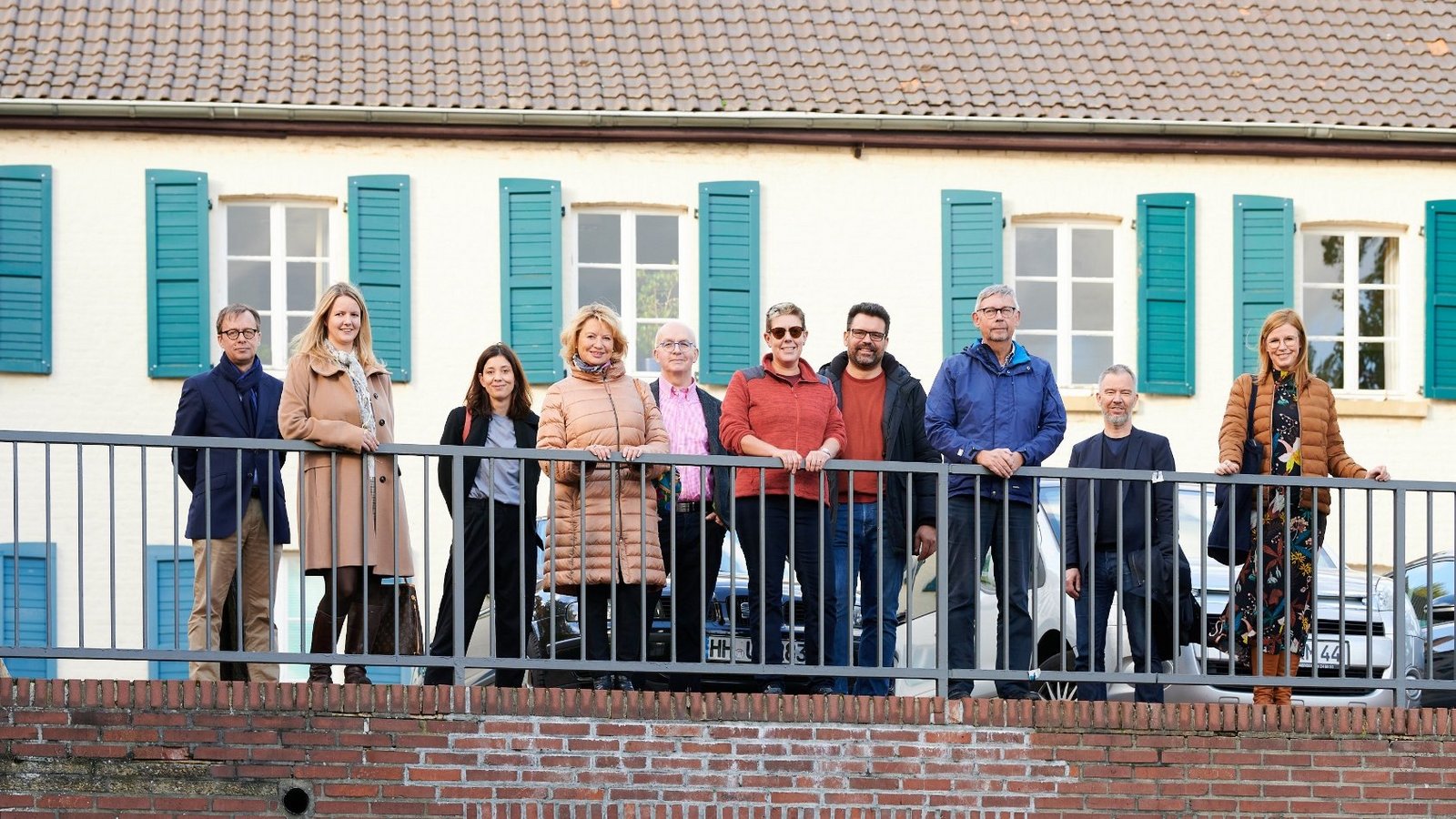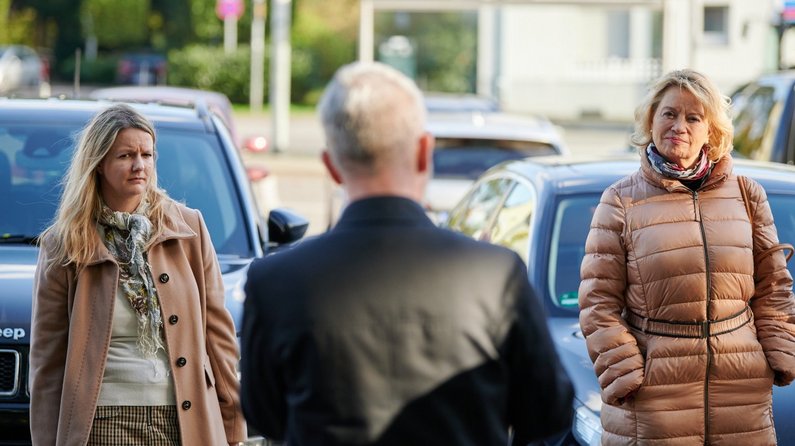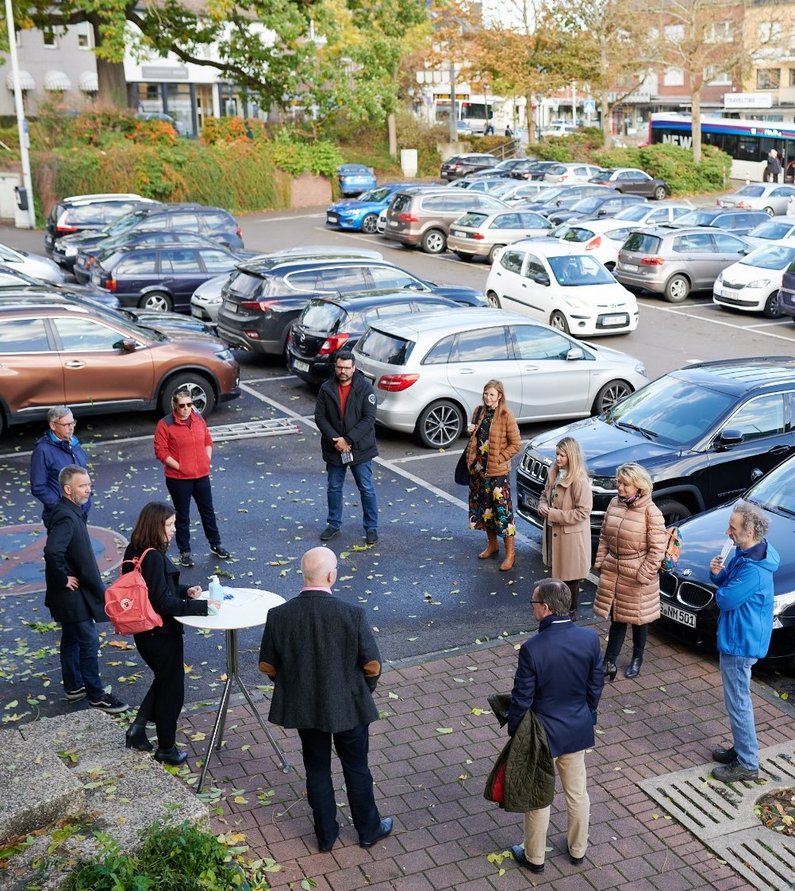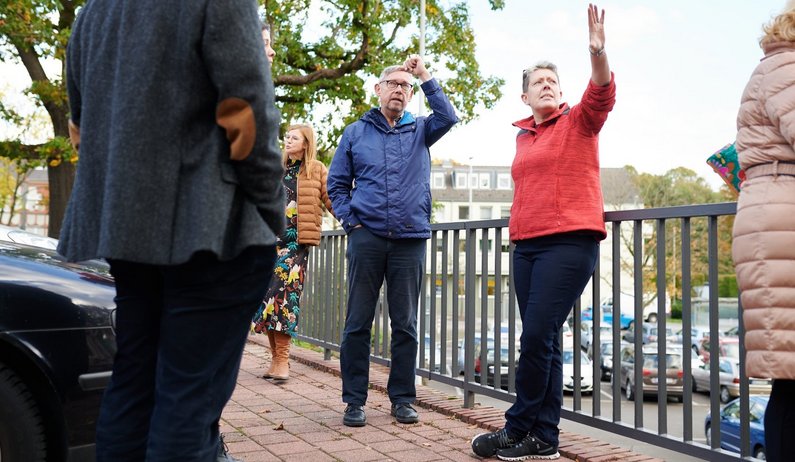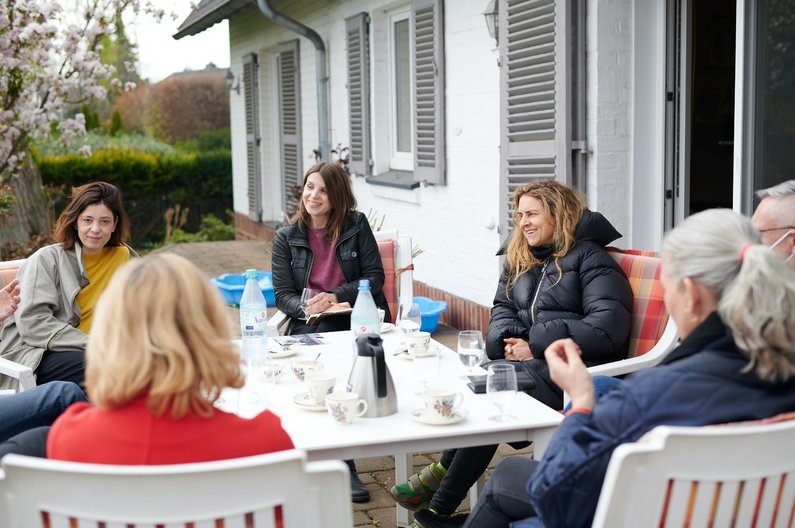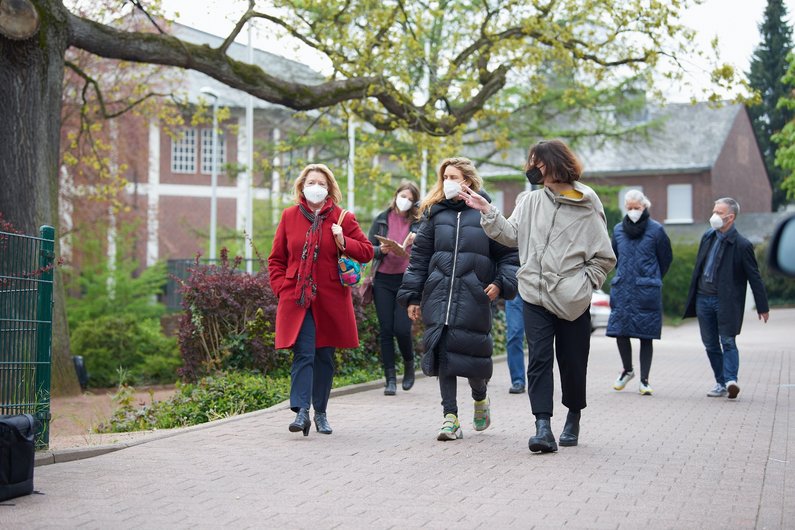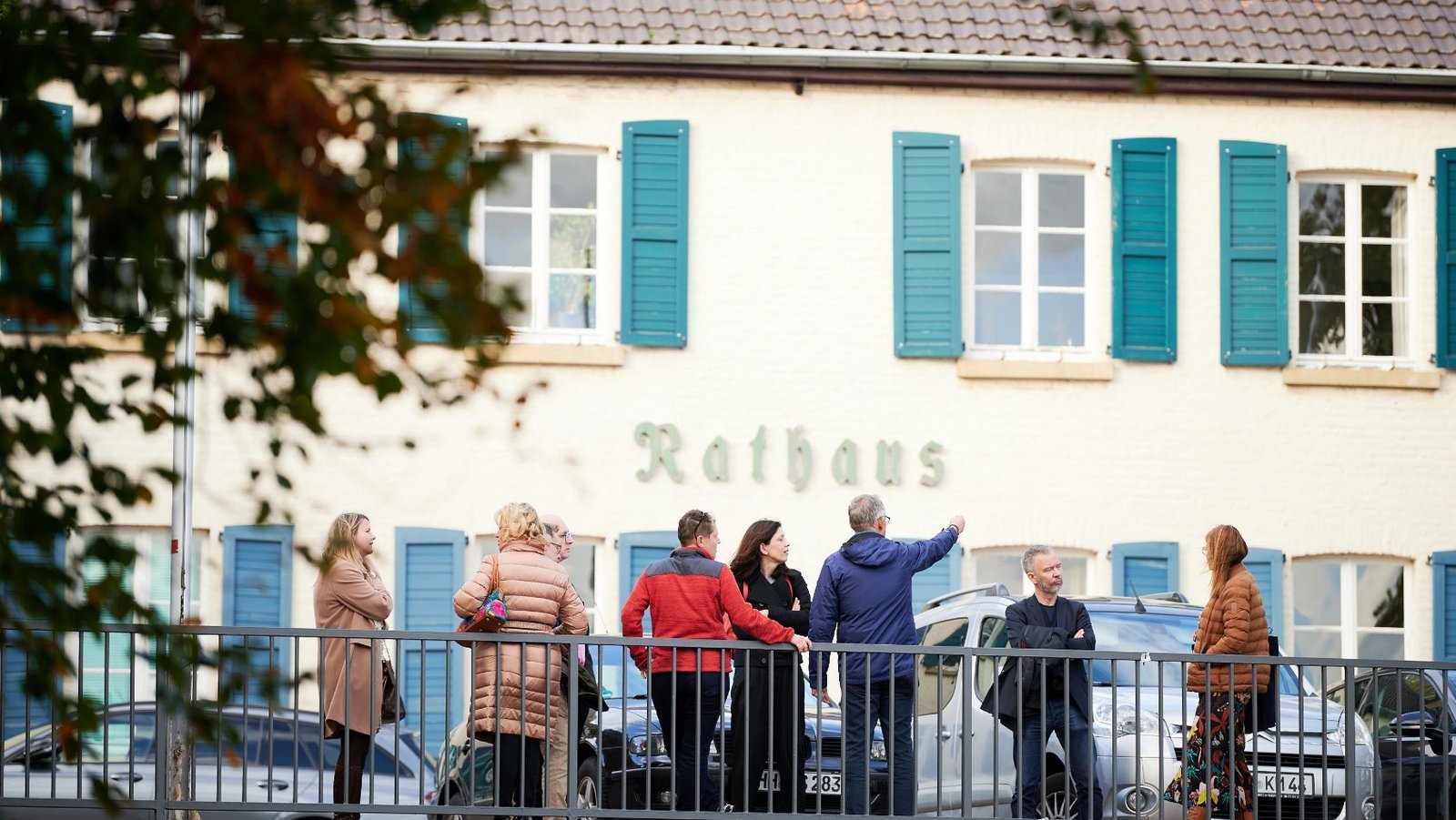Many talk about the transformation of large metropolises. But small towns and districts are also undergoing drastic transformation. While people are becoming more and more mobile and gathering and community in digital space are becoming increasingly commonplace across the generations, the need for new analogue meeting places in the immediate vicinity is also growing. Neighbourhoods, quarters and districts need centres and new meeting places to create cohesion and prevent isolation.
Wickrath, a district of Mönchengladbach for 45 years, lacks a centre. People commute to the centre of Mönchengladbach further north, where shopping facilities and administration are concentrated. At the same time, the approaching open-cast lignite mine cuts Wickrath off from parts of its surrounding area and increases the feeling of being on the edge.
This calls for a civic group to become New Patrons of Wickrath with the aim of putting an anchor in the ground and strengthening Wickrath's centre with an artistic project commissioned by them. A newly designed marketplace is to bring people together. It is to provide space for encounters and express the self-confidence of a district that had market and town rights for over 500 years. Above all, however, it is to become an architectural stage for civic life.
The square has not been a fixed meeting place so far. In everyday life the market place is a car park, once a week it serves as a weekly market and from time to time it is used as a fairground. The commissioning group has a suggestion:
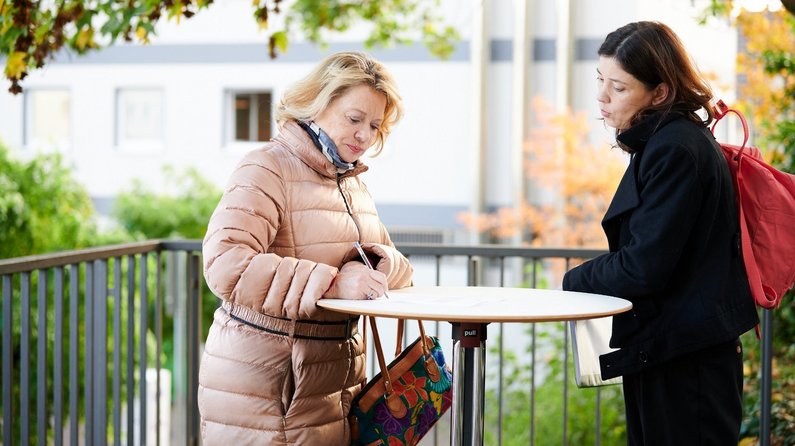
New Patron Barbara Fitzek signing the commission on the Wickrath marketplace
Photo: Florian Wagner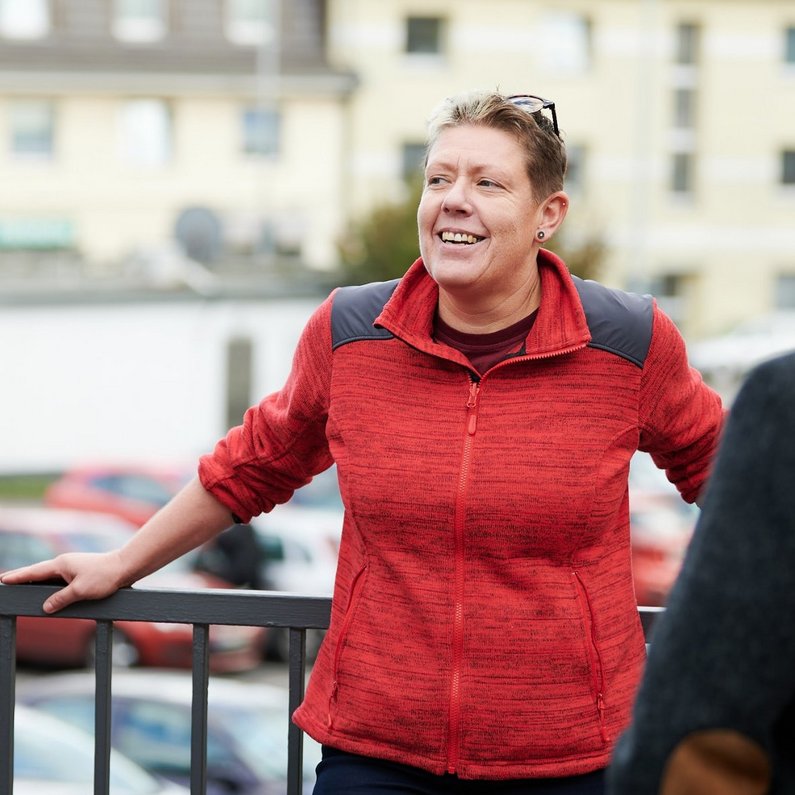
Annette Breuer of the New Patrons group on the Wickrath marketplace
Photo: Florian Wagner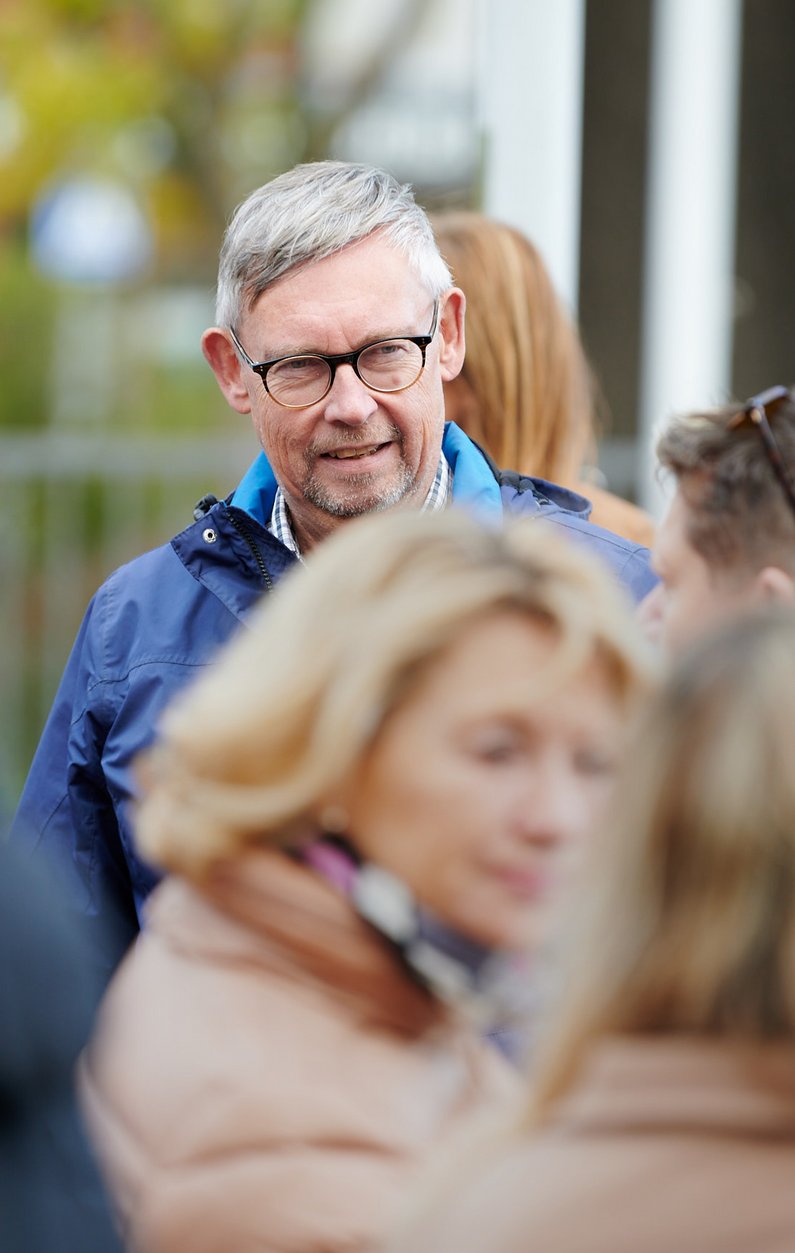
New Patron Michael Röring on the Wickrath marketplace
Photo: Florian Wagner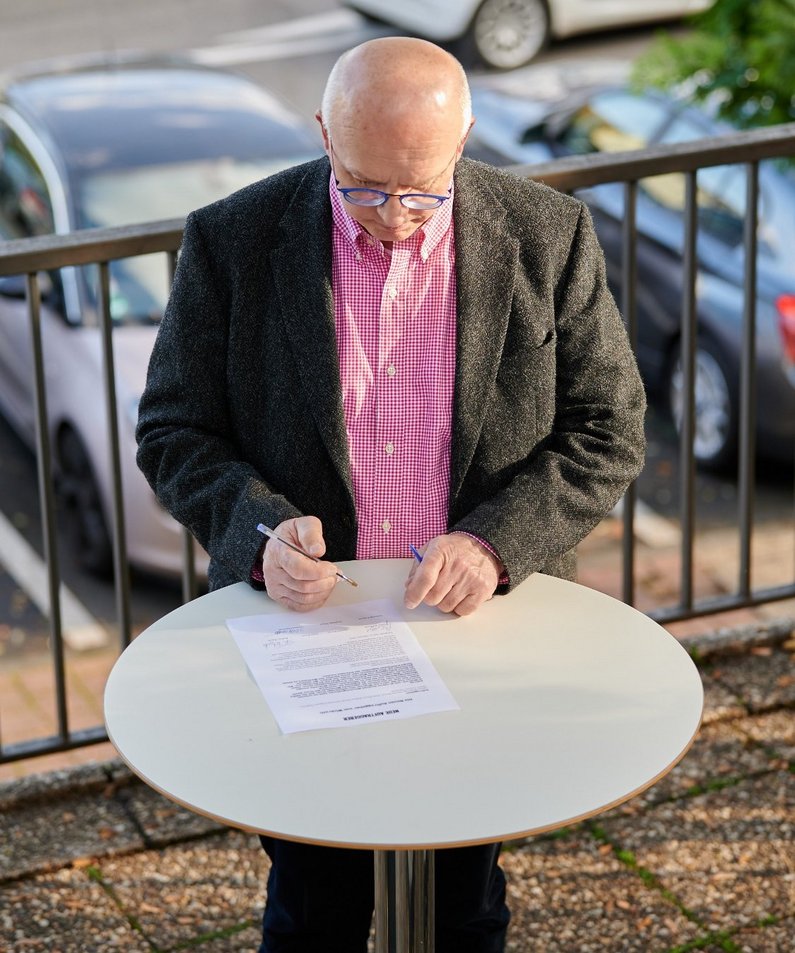
New Patron Günter Baldysiak signing the commission on the Wickrath marketplace
Photo: Florian WagnerThe group seeks answers to questions that are relevant in many places: How can public space fulfil its function as a place of encounter in our time? How can a square develop organically and in a contemporary way from its previous use?
The artist Kerstin Brätsch has accepted the Wickrath group's commission. In her abstract, colourful and large-scale compositions, she combines painting with other techniques, media and genres. Through repeated processes of transfer, transformation and collaboration, she expands common definitions and attributions of painting, materiality and authorship. The power of the unknown and mystical approaches are important points of reference in her work.
"In my artistic practice, I am interested in painting in the " extended field", that is, in expanding and questioning definitions of painting and the supposed subjectivity of the painter. How does the body manifest itself psychologically, physically and socially in painting? I question this, for example, through ongoing collaborations in artist collectives and with artisans, or by repeatedly leaving the classic white exhibition space with my work and expanding it into and with the outside space or through site-specific settings."
Kerstin Brätsch, born in Hamburg, lives and works in Berlin and New York. She has been working with Adele Röder since 2007 as the joint project DAS INSTITUT, and with Debo Eilers since 2010 under the project name KAYA. Her work has been shown at MoMA (New York, 2019), Whitney Biennial (New York, 2017, as KAYA), Museum Brandhorst (Munich, 2017), Serpentine Galleries (London, 2016 as DAS INSTITUT) and at the 54th Venice Biennale (Venice, 2011, as DAS INSTITUT), among others.
